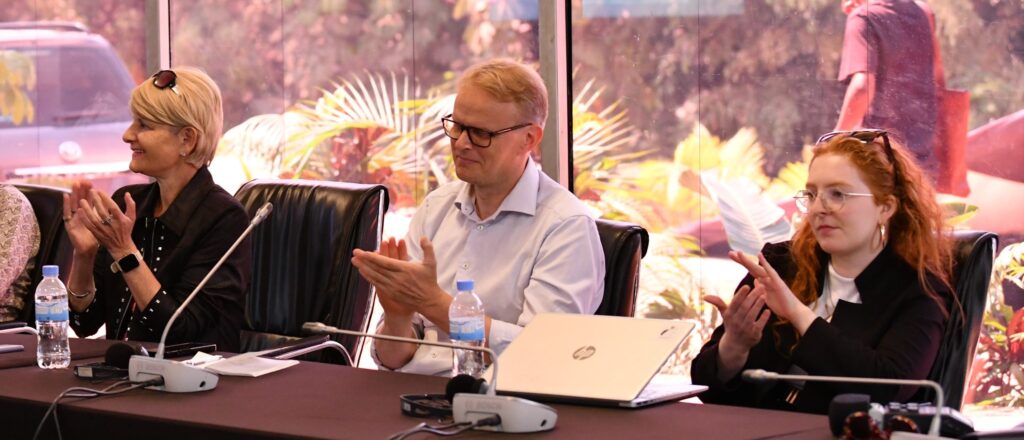A conference in Rwandan capital Kigali has underscored the crucial role of media stakeholders in addressing and countering hate speech across the world.
The around 30 stakeholders, including journalists, content creators and fact checkers from different parts of the world, had gathered at the Kigali Genocide Memorial in Rwanda over three days to share their experiences, knowledge and expertise and make recommendations to address hate speech and prevent incitement to violence.
The workshop, organized by the Office of the Special Adviser on the Prevention of Genocide, International Residual Mechanism for Criminal Tribunals (IRMCT) and Aegis Trust in partnership with L’Organisation de la Francophonie and the Templeton World Charity Foundation, was held at the end of 100 days of Remembrance of the 1994 Genocide in Rwanda.
Besides the Rwanda tragedy, the workshop also examined other examples like the Holocaust and the Srebrenica genocide in 1995, benefitting immensely from the experience of many journalists coming from conflict or post-conflict settings or with experience in reporting from conflict areas.
“Hate speech sets the stage and enables an environment where leaders and influencers can incite direct violence. History has taught us that hate speech and dehumanization of the other has preceded and accompanied the commission of practically all genocides. Today we see these historical tactics being put in place in social media, allowing hate to disseminate much faster, and to reach wider audiences,” the Special Adviser on the Prevention of Genocide, Alice Wairimu Nderitu, said.
The CEO of the Aegis Trust and Director of the Kigali Genocide Memorial, Freddy Mutanguha, commented: “Hate speech planted the seeds of fear and hostility which produced a harvest of genocide here in Rwanda.”
“Hate speech continues to turn neighbor against neighbor around the world today. That’s why we need your expertise, the combined expertise and experience of people in this room, to help us counter hate speech more effectively across the global media landscape.”
Rwanda’s Minister for Unity and Civic Engagement Dr Jean Damascene Bizimana, who opened the workshop officially, emphasized the importance of the prevention of atrocities, which start with words. He reminded the delegates how the 1994 genocide unfolded in Rwanda and the provisions of the UN Genocide Convention.
The International Residual Mechanism for Criminal Tribunals (IRMCT) Chief Prosecutor, Mr Serge Brammertz, explained how hate speech, which reaches the extreme level of direct and public incitement to commit genocide, violates the Genocide Convention, and is a crime under the statutes of the International Criminal Tribunals for Rwanda and former Yugoslavia, and International Criminal Court.
He described the emblematic “Media case” which focused on the role of Rwanda’s Radio Télévision Libre des Mille Collines (RTLM), and Kangura magazine, which spread messages fueling tensions which led to genocide, as well as cases from the former Yugoslavia, noting that trends today are shifting towards brazen genocide denial and hate speech which is not sanctioned in any way.
The recommendations of the workshop will constitute the core of a Plan of Acton for Media Stakeholders to Address Hate Speech and Prevent Incitement to Violence that could lead to Genocide and Related Crimes, which the Office of the Special Adviser on the Prevention of Genocide hopes to launch by the end of this year.




